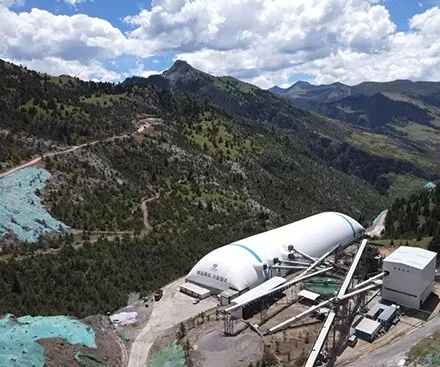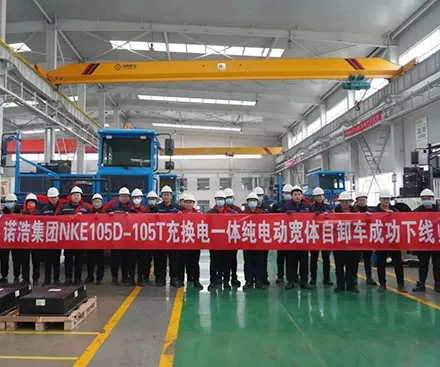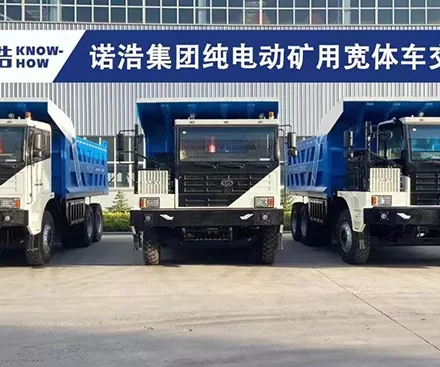When it comes to investing in heavy machinery, choosing the right wheel loader is crucial for optimizing your operations. A wheel loader is a versatile piece of equipment, essential for moving materials in various industries. But with so many options available, how do you ensure you pick the right one for your needs? This guide will walk you through the key factors to consider when buying a wheel loader, helping you make an informed decision.
The first step is to identify the primary application for your wheel loader. Are you using it for construction, mining, or landscaping? Each application may have different requirements, such as bucket size or lifting capacity.
Consider the types of materials you’ll be handling. Different wheel loaders are designed for specific materials—whether it's gravel, soil, or heavy-duty materials like rocks.
Wheel loaders come in various sizes. Compact models are great for tight spaces, standard models offer a balance of power and maneuverability, and large models handle heavier loads but require more space.
Ensure the wheel loader you choose can handle the maximum load you expect to move. Check the loader’s operating capacity and make sure it aligns with your requirements.
The power of the engine is a critical factor. A more powerful engine can handle larger loads and more challenging conditions. Check the horsepower and engine type to ensure it meets your operational needs.
Fuel efficiency is essential for long-term cost savings. Look for models with advanced fuel-efficient engines to reduce operational expenses.
Wheel loaders can be equipped with various attachments such as forks, buckets, and grapples. Consider the attachments you’ll need and ensure the loader you choose is compatible with them.
Look for a wheel loader with a quick-change system for attachments. This feature increases versatility and productivity by allowing fast changes between different tools.
Operator comfort is crucial for productivity. Check for a well-designed cabin with adjustable seats, air conditioning, and good visibility. Features like ergonomic controls and a clear display panel can also enhance comfort.
Excessive noise and vibration can affect operator health and comfort. Choose a model with noise reduction features and good vibration control.
Regular maintenance is vital for the longevity of your wheel loader. Choose a model that allows easy access to critical components for maintenance and repair.
Consider the warranty offered by the manufacturer and the availability of service centers. A good warranty and reliable support can save you time and money on repairs.
While the initial cost is important, consider the long-term value of the wheel loader. Factor in fuel efficiency, maintenance costs, and potential resale value.
Explore financing and leasing options if you’re not ready for a full upfront purchase. Many dealers offer flexible plans that can fit various budgets.
Choosing the right wheel loader involves more than just picking the one with the most features. It’s about finding a machine that fits your specific needs, offers durability, and provides value for your investment. If you have any questions or need help selecting the perfect wheel loader for your needs, feel free to contact us. Our team of experts is here to assist you in finding the best solution. As a trusted supplier, we can offer you a range of options to suit your requirements.
1. What is the difference between a compact and a standard wheel loader?
- Compact wheel loaders are designed for smaller, tighter spaces, while standard wheel loaders offer a balance of power and maneuverability suitable for a range of applications.
2. How important is engine power in a wheel loader?
- Engine power is crucial as it determines the loader's ability to handle various loads and challenging conditions. More powerful engines can handle larger and heavier materials more efficiently.
3. What should I look for in terms of attachments for a wheel loader?
- Look for a wheel loader with a range of compatible attachments and a quick-change system for easy switching between tools like buckets, forks, and grapples.
4. How do I assess the comfort of the operator cabin?
- Check for features like adjustable seats, air conditioning, good visibility, ergonomic controls, and low noise and vibration levels to ensure operator comfort.
5. What financing options are available for purchasing a wheel loader?
- Many dealers offer financing and leasing options to help manage the cost of purchasing a wheel loader. Explore these options to find a plan that fits your budget and needs.

Jul. 23, 2022
View More
Jun. 15, 2022
View More
Jun. 01, 2022
View More